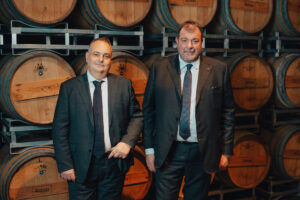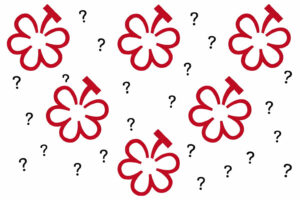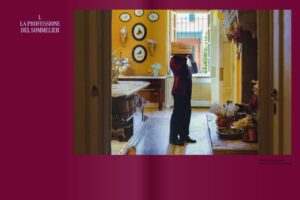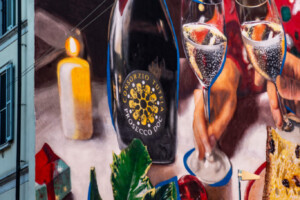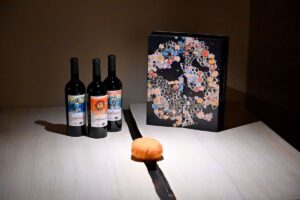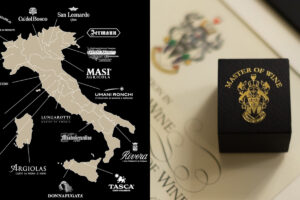There is no point in going around it, the lockdown and closure of businesses, bars and restaurants around the world have pushed wine consumption, and therefore trade, into a spiral from which it will take time to get out. This has been told, in these months, by many of the most important Italian producers in WineNews, making often dramatic balance sheets, even if limited to a period of two or three months, with some exceptions, such as Sweden. This also emerges from Wine Intelligence’s analysis of the effects of the pandemic in wine consumption, which paints a less worrying picture than one would expect. At least limited to three countries, for many aspects, similar, both from a socio-economic point of view and from the way they decided to face the emergency: the consumption of wine lover in Germany, Sweden and the Netherlands suggest a much lower impact on the wine market than expected.
Starting from Sweden, the country decided at the time to take a less drastic approach and less drastic measures than the rest of the world, discouraging crowds, but still allowing bars and restaurants to remain open, obviously taking all the necessary measures. The result is, not surprisingly, that consumer behavior in Sweden has changed less dramatically than in the rest of the world. Wine consumption has continued, adapting to life in lockdown, with only marginal changes in terms of the quantity purchased and average spending. New occasions for consumption, such as wine consumed at lunch or special dinners at home, seem to have replaced, almost one by one, the occasions when Swedes went out to socialize in a bar or restaurant.
In Germany, the German government has adopted a much more decisive and aggressive attitude to contain the virus, with the result that the country has suffered much lower levels of disease in the population and fewer deaths than the rest of Europe.
In the same line, regular wine drinkers in Germany seem to have faced the pandemic clearly and reasonably, with the market that, however, has experienced in recent years a sort of rebirth of quality and value, with consumers abandoning the old habits of saving on what they drink.
Spending on wine for domestic consumption has increased over the long term, and spending on wine for consumption outside the home has also increased, thanks to higher wages, more interesting wines to choose from and a flourishing national high-quality wine business, which is successfully cultivating direct relationships with consumers through direct sales and online.
As with their German neighbors, the Dutch wine lovers seem to have adapted to the change imposed by the Coronavirus pandemic and its restrictions. Traditionally, the Dutch market is also a market that rewards quality/price ratio, like Germany, but even here, in recent years, Dutch wine drinkers have started to spend more, with some consumers also starting to discover the band above 10 euros. The reasons for this change are similar to the German neighbors: wage growth, more interesting wines to choose from and online boom.
The arrival of the Coronavirus at the beginning of this year could have undermined these trends, but reports signed by Wine Intelligence, which analyze the impact of the Covid-19 on these markets, suggest that this has not happened, or at least not yet. German and Dutch wine lover have maintained their overall wine consumption, partly replacing lost opportunities at the bar or restaurant by drinking more at home during meals or online meetings with friends. Both Germans and Dutch are also maintaining their previous patterns of spending on wine to drink at home, unlike other markets where spending has decreased. Moreover, wine drinkers in all three markets seem serene and optimistic in resuming their previous social lifestyles. When it comes to plans, the main message of Swedish wine consumers is continuity.
Few major lifestyle changes are expected: the exception is a small minority, about 14% of the population, who say they are less likely to get out after the virus has disappeared.
There is also a certain balance between future priorities. Saving has become slightly more important than before, but not the urgent priority recorded in other markets. Instead, Swedes seem to be looking forward to living well, going on holiday and returning to their usual social life.
The only change could be that, limited to this year, a good proportion of the Swedish wine consumer population will go on holiday within Sweden rather than abroad.
Looking to the future, German and Dutch wine drinkers seem serene and optimistic about restarting their previous social lifestyles, even though many Germans, like their Swedish counterparts, seem to recognize that this year's summer holidays could be at home rather than in the Mediterranean countries. Finally, last positive aspect, among regular wine consumers 1 out of 6 wants to enjoy a good bottle to toast at the end of the emergency.
Copyright © 2000/2025
Contatti: info@winenews.it
Seguici anche su Twitter: @WineNewsIt
Seguici anche su Facebook: @winenewsit
Questo articolo è tratto dall'archivio di WineNews - Tutti i diritti riservati - Copyright © 2000/2025


















